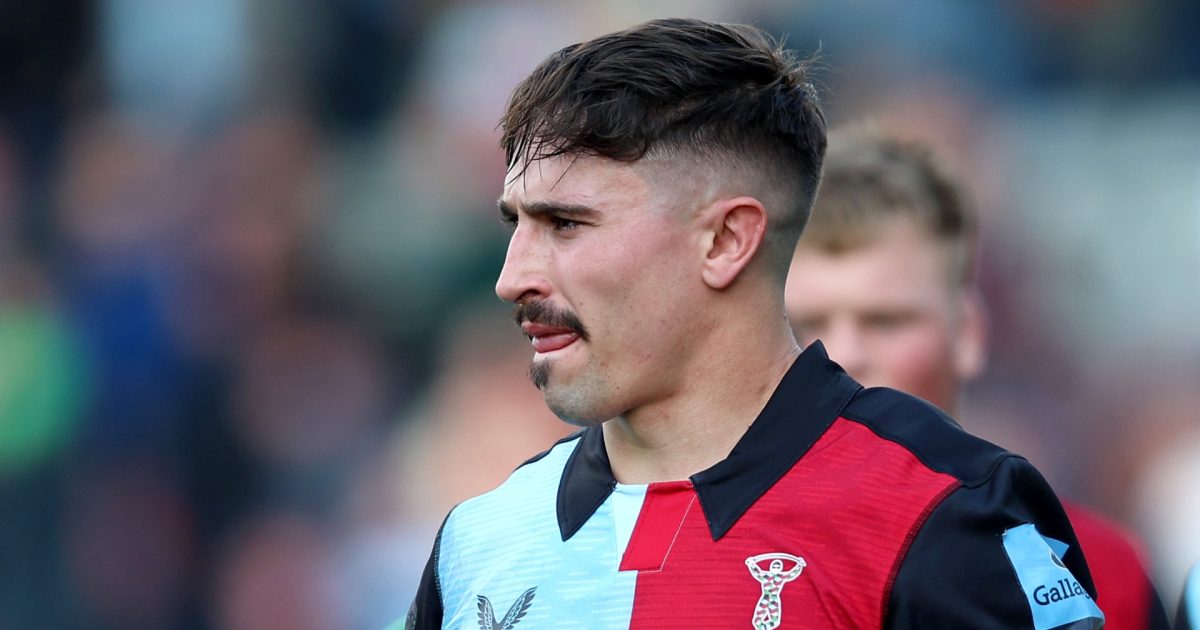Revealed: Murley evidence was 'key factor' at Chris Ashton hearing

Evidence provided by Harlequins’ Caden Murley was “the key factor” in Chris Ashton having his recent red card downgraded to yellow, a disciplinary hearing decision that prevented his stellar playing career from ending with a ban.
Ultimately, the decision came too late for Ashton to gain selection in the Leicester team that contested a Gallagher Premiership semi-final at Sale last Sunday, last Thursday’s disciplinary taking nearly five hours to complete.
When the disciplinary hearing decision did emerge on Thursday evening, it came without the full written judgement but that document has since been published on the RFU website and it explained why the contribution of Murley at the hearing was pivotal in freeing Ashton to be available for selection for Leicester for the match they went on to lose at Sale.
The decision section of the 10-page written verdict stated: “This was not a passive tackle. Instead, it was a reckless tackle in which the player [Ashton] had used an action of throwing his left arm and shoulder into the tackle, albeit that he had then backed off the tackle having realised it was too high.
“In all the circumstances of the case, the panel concluded that there was not a high degree of danger and that the correct starting point under the head contact process was a yellow card (and not, as the referee had concluded, a red card). The key factor was the evidence given by Murley, without whom there may well have been a different outcome.”
It was in the 39th minute of the May 6 match at Leicester when the red-carded incident took place and with his club season over, Murley called in from abroad to have his say at the subsequent disciplinary hearing for Ashton. The summary of evidence section in the written judgement stated: “Cadan Murley also gave evidence to the panel.
“The season is now over for Murley and he was on holiday at the time of the hearing. Despite there being some technological issues, which delayed part of the hearing, Murley described the tackle in detail.
“Murley was candid that he knew the player [Ashton] well and that he had previously played with him. He said, however, that the player had not approached him to obtain a witness statement and that it was Harlequins who had asked him to provide an account of the incident.
“Murley told the panel that a focus of their preparation for the match against Leicester was on body height. He said he had dipped his body height as he approached contact with the player and that his intention was either to try and fight to get to the floor or to push the player away using the ball.
“Murley said that the contact was to his right shoulder (and gestured to the panel a point around his AC joint) and that the tackle then rode up and finished around the neck area as he tried to bust through the tackle. He said that he felt the impact through the shoulder and that the level of force on his neck was minimal.
“When asked by the RFU representative whether he was sure the initial contact was to the shoulder, he replied ‘definitely’. He said he had not seen the video but remembered the point of contact. He said the tackle rode up to the ‘crease of my neck as I dipped further’.
“When asked why he thought his head moved backwards in the tackle, Murley said he was continuing to go towards the floor and felt like the player’s shoulder was holding his head up as he was going to the floor rather than because the tackle was driving him backwards.
“Murley said he had stayed down on one knee after the tackle because he had had a little bit of pressure around the neck area, that he had recently had an issue where he had been tackled to the head, causing him to have a double root canal, and that it was what he was trained to do in those circumstances.
“He said the physio tested his shoulder range and strength before he then continued with the match. He said he respected the decision of the referee but was surprised the player had received a red card given the (low) level of contact to the head.”
- Click here for the full 10-page disciplinary hearing written judgement

























